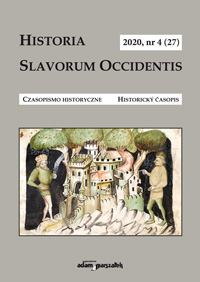Between fraternal help and economic realism. The employment of Polish workers in Czechoslovakia (1945–1950)
Between fraternal help and economic realism. The employment of Polish workers in Czechoslovakia (1945–1950)
Author(s): Tomáš DvořákSubject(s): History
Published by: Wydawnictwo Adam Marszałek
Keywords: foreign workers; labour policy; planned economy; Czechoslovak-Polish relations
Summary/Abstract: The paper deals with the topic of the employment of the Polish workers in post--war Czechoslovakia. Analysed are mainly the features of the Czechoslovak workforce policy with some insight into the political context of the Czechoslovak-Polish relations. Despite the tensions, the employment of Polish citizens in Czechoslovak coal mines continued after the war in line with the laws of supply and demand. The advantages of the temporary bor-der crossing, were enjoyed and quietly tolerated by both parties. First, with the start of the five- and six-year Plans in both countries, this development conformed with the demands of the centrally directed policy for the distribution of workforce stemming from a planned economy. From its very beginning, recruitment of Polish agricultural workers represented a method employed by the government in its attempt to cope with the permanent shortage of workers in the post-war Czechoslovak labour market. Just like the other emergency mea-sures, it was accompanied by disproportions in economic costs. The influence of political symbols which were detrimental to the economy were also among the specific attributes of this arrangements. The development in both cases reveals a change in the economic as well as political thinking on the threshold of the communist rule.
Journal: Historia Slavorum Occidentis
- Issue Year: 27/2020
- Issue No: 4
- Page Range: 101-131
- Page Count: 31
- Language: English

